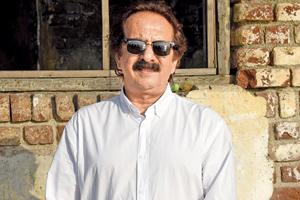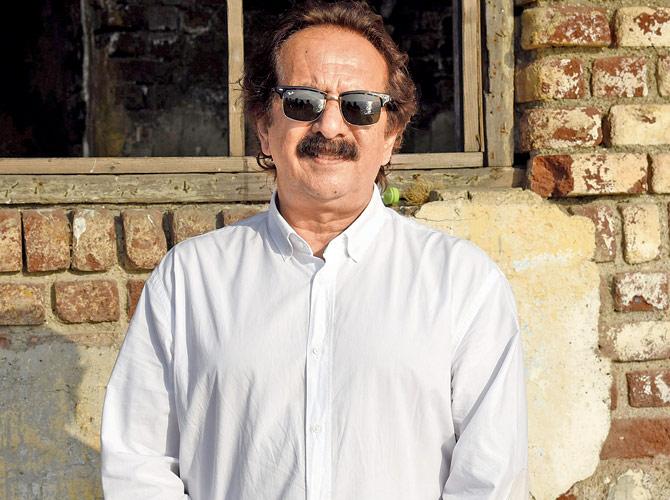Iranian auteur Majid Majidi's first Hindi film would fit in, regardless of where in the Third World it's set


Majid Majidi similarly doesn't make films for the poor; surely he makes it about them - to express 'on behalf of the voiceless,' as he puts it. File Pic
ADVERTISEMENT
 For no particular reason, around the release of Danny Boyle's Slumdog Millionaire (2008), primarily set in Dharavi, I hosted a screening of the film inside what's falsely referred to as 'Asia's largest slum', in Mumbai's central suburb.
For no particular reason, around the release of Danny Boyle's Slumdog Millionaire (2008), primarily set in Dharavi, I hosted a screening of the film inside what's falsely referred to as 'Asia's largest slum', in Mumbai's central suburb.
The family that I had contacted through a friend's NGO was happy to have me, and a few neighbours over, into their tiny shanty, with a severely low ceiling that held together steel pots, pans, plates under a tight, sleeve-like rope. As the 120-minute, sleeper, global blockbuster (that was initially supposed to go 'direct to DVD') wrapped up on the TV before us in a surrounding no different from what had played on the screen, I looked around at the audience. They had absolutely no expression on their faces. They had been promised a 'phillum'. This one, lacking in all regular 'filmy' tropes (hero-heroine, song-dance, etc.), didn't count as one. Slumdog had wholly unimpressed the slum-dwellers. And, I wasn't surprised.
The world they looked at had wholly revealed itself to them. There was little curiosity left, least of all for Jamal, Latika and co., let alone a sense of recognition. (A side note: It's no wonder that some of the greatest public movements for the rise of the poor have mostly emanated from the elites — yeah, Lenin, Marx, Gandhi etc, were all elites — even as there is sustained effort to denigrate and club elites, with elitism. Of course the two aren't the same).
Iranian auteur Majid Majidi similarly doesn't make films for the poor; surely he makes it about them — to express "on behalf of the voiceless," as he puts it. Would his protagonists, chiefly from the under-classes, behave the same, whether in Tehran (Songs Of Sparrows), among Afghans (Baran), or in Mumbai, as in his first Indian/Hindi film, Beyond The Clouds?
I can't see how the intense empathy generated through a teenage boy Aamir (Ishaan Khattar), who inadvertently ends up caring for the family of an old man (director-turned-actor Gautam Ghose), who'd attempted to rape the boy's sister Tara (Malavika Mohanan), could be any different, regardless of where in the Third World you're in. So long as Majidi can find humanity to tell his stories. He does. Because? It exists.
Majidi exhibits this more obviously by placing two little children in the stories of both the young boy, and the girl. Which is only fair, coming from the director of Children Of Heaven (1997), the finest film there is on the sheer innocence of growing up — about a poor kid who wants to come third in a school-race, so he can win a pair of shoes (the third prize)! Frankly, children are our only true test of humanity. If their presence in your life, or an adverse situation they find themselves in, doesn't move you, I suspect, you have pretty much lost all human capacity to feel, anything. Period.
The setting, therefore — under-explored parts of a very 'Slumdog Millionaire', lower-deck Mumbai — is merely a frame, not just of reference, but also progression; put together beautifully, with the help of cinematographer Anil Mehta. A lot of people who live in Mumbai inevitably find everything to do with Mumbai a living cliché. This isn't the fault of the outsider's gaze. That's just how the insider's fatigue functions, always. But, you know this isn't some poverty tourism. Nor is it an exploitative mela.
As much as Mumbai, Majidi recurrently employs the motif of a sort of a shadow-play — shadows projected on walls, behind curtains — to reemphasise his point of a life beyond the proverbial clouds, that his young, orphaned characters can only hope or aspire for, because they've never experienced it here and now. He relentlessly aims at generating compassion among audiences that only great art is capable of. Even religion used to be. Although in its toxic mix with power and politics, it appears, religion has almost reversed its capacity to reform man, or at any rate, make it care as much for the other.
Majidi is a religious man. His last film was on the Prophet. He doesn't care for politics. Or so he mentioned, while referring to fellow Iranian director, Mohsen Makhmalmaf, who does. Over the past few decades, Majidi's country has been engulfed in the sort of religious politics that's almost sucked out the art and fun from regular life. He hasn't much to say on the subject, because he feels these are newsy, transient phases. It doesn't affect larger human principles. Fair enough.
If it takes a Persian filmmaker, working in Mumbai, with an all-Indian cast-crew, directing them in Farsee, through his translator's voice in English, to tell us about the universal oneness of man in Hindi, I'll take it. The penny drops with the possibility of this kind of filmmaking itself. And then, he says, "I believe I've introduced two fine talents (Khattar, Mohanan) into India cinema." That's true as well.
Mayank Shekhar attempts to make sense of mass culture. He tweets @mayankw14 Send your feedback to mailbag@mid-day.com
Catch up on all the latest Mumbai news, crime news, current affairs, and also a complete guide on Mumbai from food to things to do and events across the city here. Also download the new mid-day Android and iOS apps to get latest updates
 Subscribe today by clicking the link and stay updated with the latest news!" Click here!
Subscribe today by clicking the link and stay updated with the latest news!" Click here!







